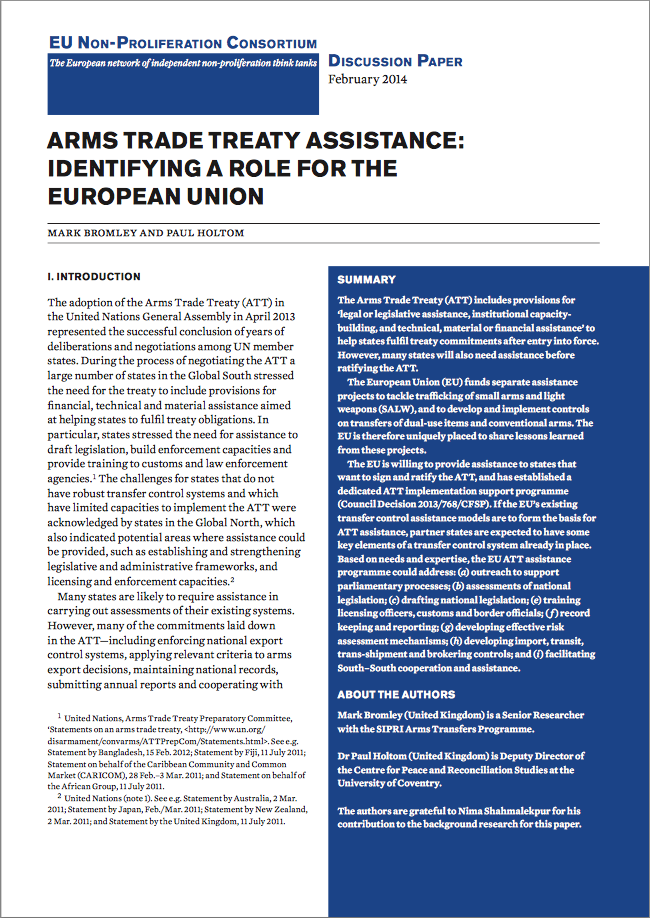EU Non-Proliferation Consortium
The Arms Trade Treaty (ATT) includes provisions for ‘legal or legislative assistance, institutional capacitybuilding, and technical, material or financial assistance’ to help states fulfil treaty commitments after entry into force. However, many states will also need assistance before ratifying the ATT. The European Union (EU) funds separate assistance projects to tackle trafficking of small arms and light weapons (SALW), and to develop and implement controls on transfers of dual-use items and conventional arms. The EU is therefore uniquely placed to share lessons learned from these projects. The EU is willing to provide assistance to states that want to sign and ratify the ATT, and has established a dedicated ATT implementation support programme (Council Decision 2013/768/CFSP). If the EU’s existing transfer control assistance models are to form the basis for ATT assistance, partner states are expected to have some key elements of a transfer control system already in place. Based on needs and expertise, the EU ATT assistance programme could address: (a) outreach to support parliamentary processes; (b) assessments of national legislation; (c) drafting national legislation; (e) training licensing officers, customs and border officials; (f) record keeping and reporting; (g) developing effective risk assessment mechanisms; (h) developing import, transit, trans-shipment and brokering controls; and (i) facilitating South–South cooperation and assistance.





